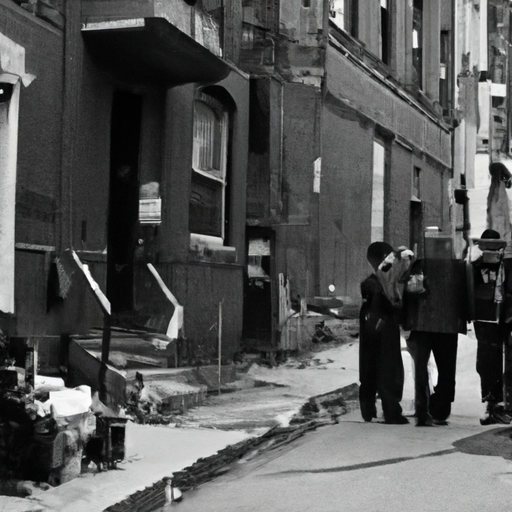The Opioid Crisis in Canada: A Deep Dive into the Effects and Initiatives
The Scourge of Opioids
The opioid crisis continues to ravage communities across Canada, coinciding with a troubling rise in homelessness and a hot housing market that is pushing vulnerable raialsidents towards poverty. This blog post aims to bring attention to recent reportage, spotlitghting the surge in opioid cases, the repercussions on the local community, and the collective response to combat the crisis.
The Impacts: A crime wave, homelessness and community’s distress
The ravages of the opioid crisis are perhaps most visible on the streets. This isn’t solely about those who are victims of the opioids themselves, but extends to the entire community. Unabated opioid abuse has led to an evident increase in crime rate, coupled with homelessness that is making the situation even more grim. Notably, this has coincided with the rise of a heated housing market squeezing out those on low income. Amidst these overlapping crises, countless innocent individuals and families have been involuntarily driven towards a life of pauperism and crime.
Proactive Approaches: Naloxone, Rent Bank and the Opioid Class Action
The response from the government and community organizations to the opioid crisis has been a mixture of medical, financial, and legal interventions.
Naloxone: A temporary reprieve
The miraculous overdose-reversing drug, naloxone, has found itself at the forefront of medical approaches to the opioid crisis. By binding with opioid receptors in the brain and blocking the effects of opioids, naloxone can quickly reverse an overdose situation—effectively saving lives. However, while naloxone can stave off an immediate threat, it is not a solution for long-term addiction.
Rent Bank: A Hope for the Homeless
The Liberal government in Nova Scotia has introduced a novel initiative to set up a rent bank for struggling renters. The idea of a rent bank is simple: it offers struggling renters an interest-free loan that can be used to cover their rent in times of financial hardship, thus preventing homelessness. This initiative, although timely, needs to be replicated and expanded across the country.
The Opioid Class Action: Seeking Accountability
In the realm of law, the opioid class action cases against the pharmaceutical companies that manufactured and marketed these addictive drugs are hoping to bring about liability and accountability. The goal is twofold: gaining financial reparations for the communities that have been worst hit by the opioid crisis, and sending a clear message to the pharmaceutical industry about their ethical and legal responsibilities.
Accuracy and Future Directions
Following through on the initiatives mentioned above with meticulous accuracy has been found to enhance the output vastly. It calls for a comprehensive, multi-faceted approach that addresses the root causes, while also managing the symptoms of the crisis.
Key Points:
- In the wake of the opioid crisis, crime and homelessness have increased in Canadian cities
- Response efforts to the crisis include the widespread availability of naloxone, establishing a rent bank for struggling renters, and large-scale opioid class action lawsuits
- Naloxone can provide immediate, life-saving assistance during an opioid overdose but is not a cure for addiction itself
- Rent banks can help to prevent homelessness by offering interest-free loans to cover rent during times of financial hardship
- Opioid class action lawsuits aim to hold pharmaceutical companies accountable for their role in the crisis
In Summary
To counter the ongoing opioid crisis coinciding with rising homelessness in Canada, a multi-faceted approach incorporating medical, financial, and legal interventions is essential. While naloxone plays a crucial role in overdoses, its stance as a long-term solution remains ambiguous. The promising initiative of a rent bank needs to be absorbed on a wide scale, providing tangible assistance to struggling renters. Moreover, the opioid class action lawsuits thread an influential narrative, where pharmaceutical manufacturers bear the brunt of their marketed addictive substances. As these efforts root into society, a hopeful future can be envisioned that’s all-encompassing in its approach to overcoming the opioid crisis.
